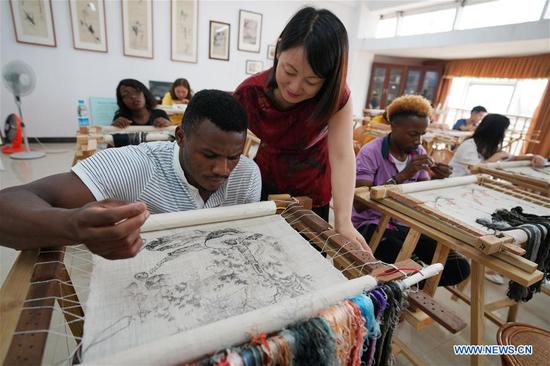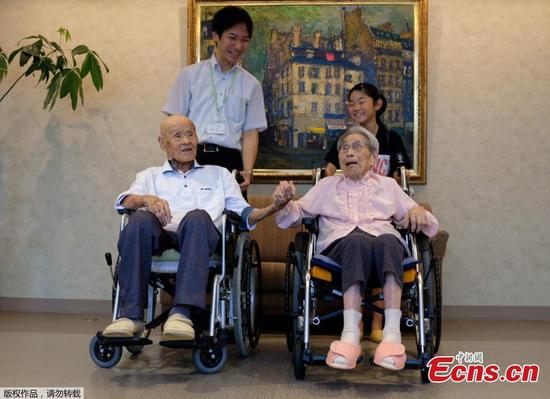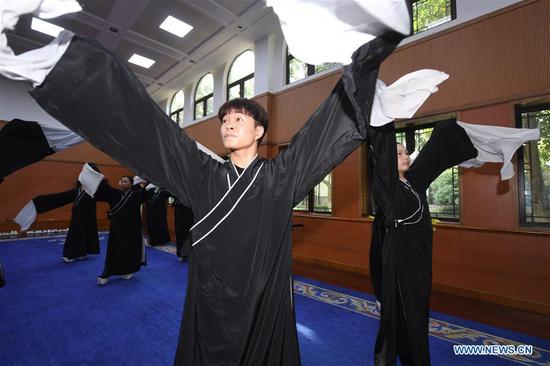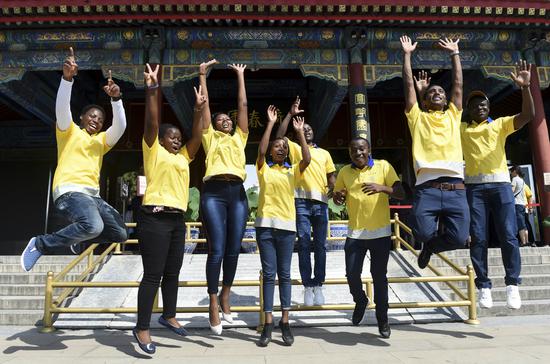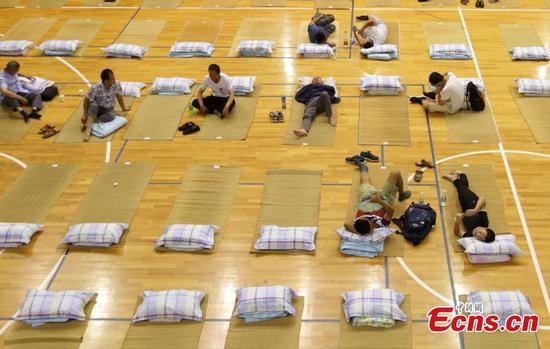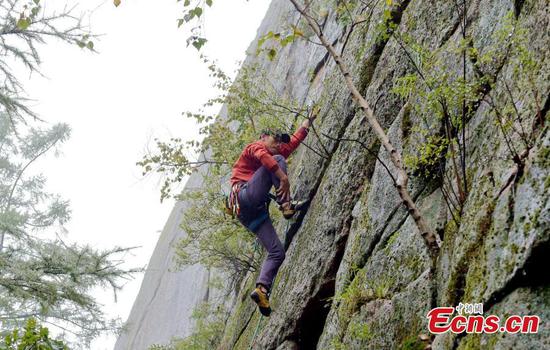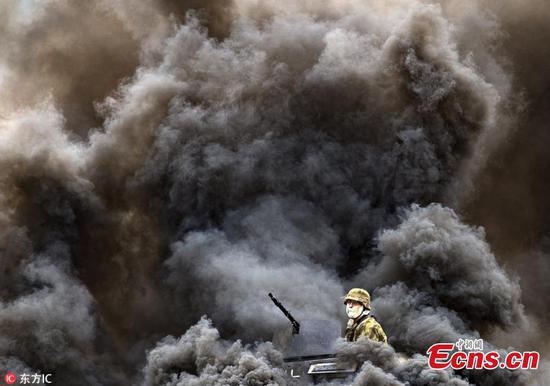China has seen a continuous drop in cases of violence on school campuses in the past three years, thanks to improvements in the Chinese Criminal Procedure Law and efforts aimed at protecting juveniles.
The number of offenses on campuses, including kindergartens, primary schools and colleges, exceeded 1,000 in 2015, but fell 16.5 percent in 2016 and then declined another 13.4 percent in 2017, according to a report issued by the China Justice Big Data Institute on Wednesday.
Most cases of violence on campus were heard in Henan, Guizhou and Shandong provinces, and more than half of the offenses involved trivial matters, said the institute, which operates under the Supreme People's Court.
"Credit for the decrease should go first to legal amendments, as lots of minor offenses committed by juveniles don't need to go to court if the offenders plead guilty," said Guo Jie, a judge at Sanming Intermediate People's Court in Fujian province.
Meanwhile, since 2015 many courts have dispatched judges to schools to explain the law and give tips on how to prevent violence.
"For example, I'll go to a middle school in Sanming this month to teach students how to protect themselves when being attacked and tell them what criminal liabilities they will face if they harm others," Guo said.
She said that schools, the city's education bureau, prosecuting authorities and public security department have also joined the team to fight campus violence.
Incidents involving children were mainly triggered by "very small matters", she said, such as arguments over a hot issue or even by jokes.
In a case handled by Guo in 2016 involving two middle school students, the defendant stabbed the victim to death with a fruit knife after the two argued while waiting for a school bus.
"The offender became angry and committed the murder after other classmates laughed at him as a coward who did not fight back," she said. "The provocation brought the tragedy about."
She did not disclose what penalty the boy was given, but added that some trivial matters that adults ignore might be big issues for children.
Zhao Hui, a Beijing lawyer specializing in juvenile cases, suggested that parents and teachers should take more time to talk with children and observe the changes in their daily lives.
"For instance, some sensitive teenagers easily became tense or even fall into depression after arguments or being bullied by classmates. If we can spot the emotional change earlier and take measures in a timely manner, some tragedies will be avoided," she said.
In August, schools in the Xihu district of Hangzhou, Zhejiang province, were ordered to report allegations or evidence of sexual harassment on campus to police with 24 hours.
Zhao applauded the move, saying the system should be extended to help solve the problem of campus violence.
The institute's report also said that more than 35 percent of violent incidents on campus in the last three years occurred in dormitories, followed by classrooms and restrooms.
Young defendants in about 37 percent of cases heard by Chinese courts between 2015 and 2017 turned themselves in to police and schools, it said, adding that a majority of violent incidents on campus were committed by youths 16 to 18 years old.










